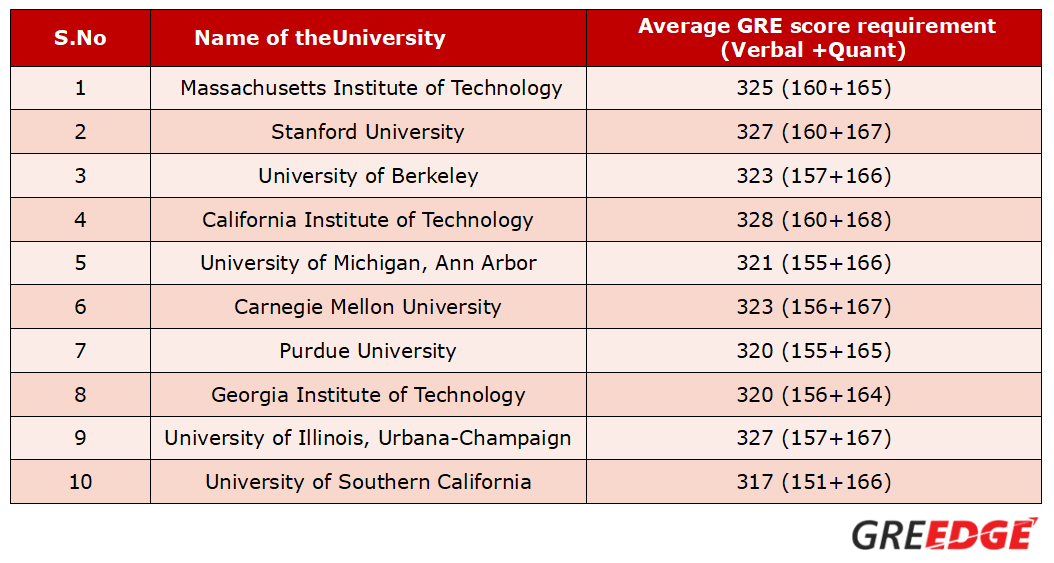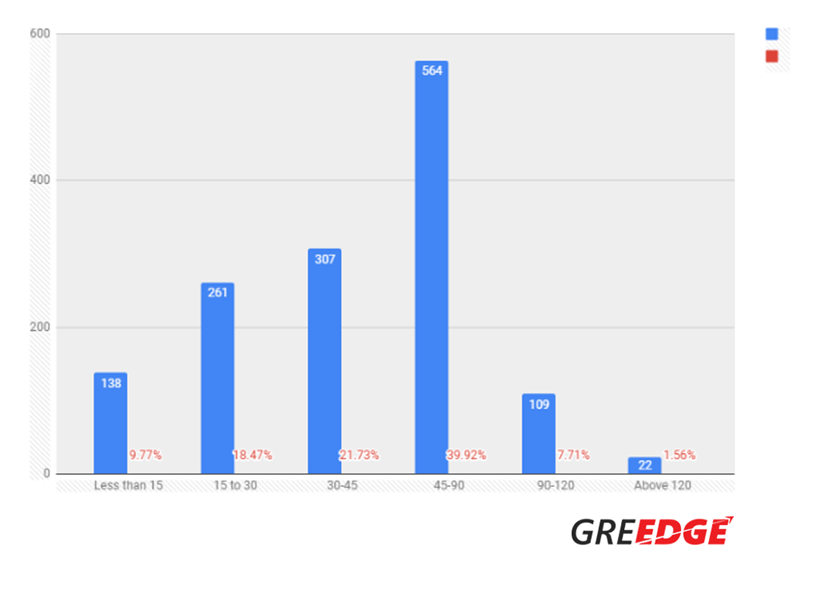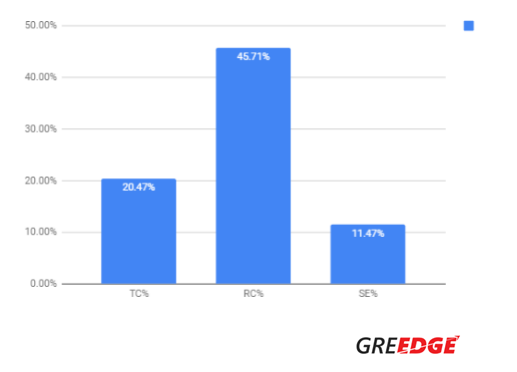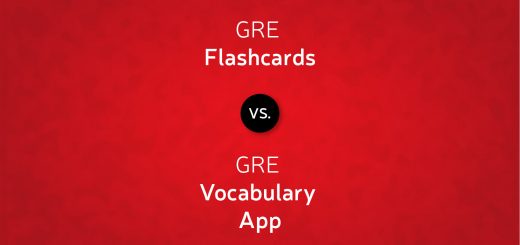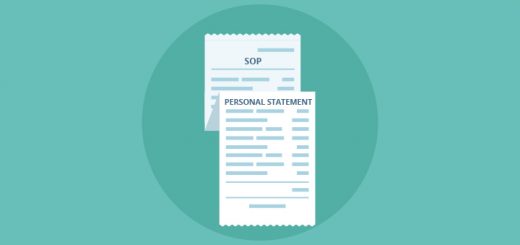Prepare for GRE – How much Time is Required?
The GRE, much like any competitive exam, requires a fair amount of preparation before you can master it. The question that often arises is: how long should I really dedicate to prepare for GRE? Or, my friend spent about a month on his preparation and ended up scoring a 325, should I do the same?
The ideal amount of time you should set aside to prepare for GRE will actually depend on a plethora of factors, all of which you should take into account while drawing up timeline to prepare for GRE. These parameters include your ideal target score, your current skill levels, the time you’re able to allot to your GRE preparation every day, the mode of learning you follow, and your learning speed.
For instance, if you’re able to set aside about 3 or 4 hours of your day prepare for GRE and practice every day, you shouldn’t need more than a month to ace the exam. However, if, say, your Verbal skills are weak and in need of some serious work, then you may want to consider setting aside more than just a month since GRE Verbal is something that requires a considerable amount of practice before you get the hang of it.
To know where your current level of preparation stands, try this free GRE score predictor tool. Not only will you get an accurate estimation of your GRE score, but you’ll also get feedback of where exactly you need to work on!
1. What’s a Good GRE Score
Generally, the idea of a ‘good score’ is purely subjective and is contingent on the programmes and universities you apply for, plus the relative GRE scores of your competitors. However, it’s always a good idea to know what you’re up against, so here are the GRE cutoffs of the top ten schools in the US:
Check out the GRE Cutoff scores for top 35 US Universities Here
As we can see, every single university but one has an average requirement of at least 320, so anything above 320 could be considered a good GRE score.
Keeping that in mind, then, let’s see how long it takes on an average, for an aspirant to score a 320+ when you prepare for GRE.
2. Time require to Achieve 320 in GRE
Over the years, we at AdmitEDGE (…formerly GREedge) have been able to observe how much time 320+ scorers normally take to achieve their desired results, and we’re happy to share our findings with you in the hopes that they help you too! Our findings are based on tracking the study activities of students just like you, and this ensures that it is absolutely spot-on. Excited? Well, here we go!
Out of a random sample of more than a thousand 320+ scorers in GRE, we observed that a majority of those who did get high GRE scores prepared for anywhere between 45 to 90 days. However, we also noted that there were at least 200 students who scored a 320+ with just 30 days of prep.
So, what did these guys do differently? What are their secrets? How many hours did they put aside each day to score a 320+?
- First, our 320+ scorers spent around 2.5 hours on their GRE prep every day, dedicating about 1 hour 15 minutes each to Quant and Verbal. This may sound like a lot of time, especially if you’re working but remember, it’s almost the same time you’d take to watch the latest series of Sherlock! So, how exactly should you split your 2.5 hours?
- Let’s start with Quants first. As we know, there are six main topics: Arithmetic, Algebra, Geometry, Data Interpretation, Data Analysis, and Applied Math. While it’s important to dedicate time to all of these components, our findings reported that Geometry and Arithmetic were the areas where our 320+ scorers spent more time. 16.72% of their time was dedicated to mastering Arithmetic, while the time spent on Geometry was 16.57%. They divided the rest of their time equally among the other topics.
- So, what about Verbal, the other half of while preparing for GRE? According to our data, GRE aspirants dedicate a whopping 45% of their total Verbal prep time on Reading Comprehensions! Surprised? Well, given that ten out of the total 20 questions on the GRE Verbals are based on the Reading Comprehensions, it makes sense to spend proportionate time on the preparations, too.
- Finally, we have the infamous GRE Words. While it may be tempting to cram all the words on your list in a matter of one week, our aspirants have a better solution. We found that they learn around 612 GRE words in a month, which translates to roughly 20 words a day. If you’re daunted by that, you can start small, with 5 or 7 words a day, and gradually build up.
Download our eBOOK on “High Priority GRE Word List”
Now that you know what kind of a GRE score to aspire for and how much time to set aside per day for the same, the next step should be to formulate a proper study plan that will help you perform your best. Having such a plan is crucial to bringing you closer to your dream of a 320+.
3. Making a Proper Study Plan
Download 2 hrs/day 320+ scorer 30 day study plan Here
The very first step is to take a test that gives you a good picture of your current strengths and weaknesses, so you can plan accordingly.
Did you know that you can take the Diagnostic Test, which is a crucial tool to help you gauge your preparedness for the GRE? Yes! The Diagnostic Test is basically a mock GRE test and must be taken without any prior preparation. Based on the results, you’ll know your strengths and weaknesses, as well as how you stack up against your peers.
Want to give it a go? Click here to get started. Your diagnostic test results will also be instrumental in helping us customize a program just for you, so you can put your best foot forward on test-day.
So why is a customized study program important? Often, we might hear about our friend or cousin scoring a 325 after 20 days of preparation, and think a similar plan would work for us too.
However, it’s a common misconception many students fall prey to. In reality, your prepare for GRE plan needs to be as unique as you.
Why so?
From our experience in tracking the study patterns of high GRE scorers, we have found that proper planning has always been instrumental in helping students reach a stellar GRE score. The study plan usually varies from person to person.
4. How to prepare for GRE?
Over the course of our findings, we also noted that generally, students tend to spend more time on preparing for the Verbal section than the Quants. Specifically, one of the things that require patience is vocabulary building. The GRE is notorious for its use of obtuse, often archaic words and phrases, and so, a decent mastery over vocabulary is crucial in order to be able to target a high GRE score.
But how many words do you actually need to learn? The whole Manhattan Word List, containing around 3500 words? Actually, our findings have shown that more than 400 students who scored 160+ in their Verbals only learned about 1000 words or so, while mastering an average of 500 words in total. What is the difference between learned and mastered words? Mastered words are those whose meanings and usage you are familiar with. But is it actually that straightforward? Not really; because you see, there are two kinds of problems that students face when learning new GRE words: complicated GRE words and remembering these words. Given that the GRE tests words that we don’t really use in common parlance, it becomes important to devote a portion of your preparation time to memorising these words. An average person can only learn about 7-8 words every day. But when you are preparing for GRE, the stakes are higher, since you’ll have to learn at least 25-30 words everyday, if you want to reach the goal of learning about 650 new words a month. Don’t be daunted just yet, though, since there are three techniques you can espouse to make your GRE word preps more enjoyable and long-lasting.
The First technique is called Learning and Application. Think of learning a new GRE word is like meeting a new person. Would you consider the person a friend if the only thing you know about him is his name? It’s the same with GRE words. If you merely read the GRE words without learning their usage, you are bound to forget it. When you become comfortable enough to use the words in your everyday writing and speaking, that’s when you know you’ve mastered it!
So, how can you constantly check your relationship with your GRE words? By learning and testing at regular intervals, that’s how. Here is something that can help you with that!
The Second technique is called Visual Learning. So, did you know that visual memory has a massive stage capacity for object details, and is 60% more powerful than rote learning?. So how can you use visual learning for learning GRE words? Visual learning is a memory enhancement that relates a particular concept to a visual element. For instance, you could associate a picture of the bells ringing to the GRE word ‘tintinnabulation’ (meaning a ringing sound) to aid in better retention.
Download our eBOOK to learn GRE Words with TV Series & Cartoons
The Third and Final technique is a classic one, and is an excellent way to learn words in bulk. It’s called the root-word technique. Here, you would be required to split the GRE words and identify their root word, or the word they originate from. For instance, the root word ‘gamy’ in Latin means marriage: learning this means you’ll be able to parse the meanings of words like ‘polygamy’, ‘monogamy’ and ‘misogamy’, meaning multiple marriages, single marriage and an aversion to marriage respectively. That’s three words learned with knowing just the root-word suffix. Amazing, isn’t it?
These are just some of the techniques you will learn with the WordBot, an App designed to help you gain complete mastery over GRE words, using fast, effective techniques that make memorization easy and long-lasting.
Check out the Wordbot App Now!
We hope you found this article useful and informative, and wish you well on your graduate school journey ahead! Have any doubts or queries? Be sure to drop a comment below, and we’ll get in touch with you at the earliest.
All the Best!


